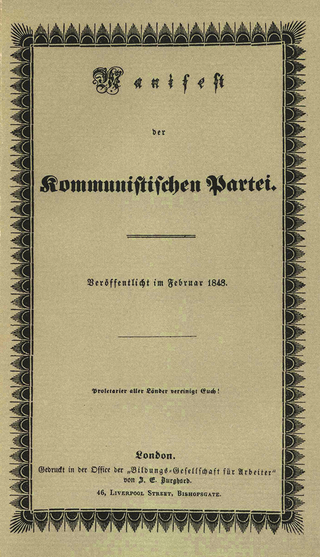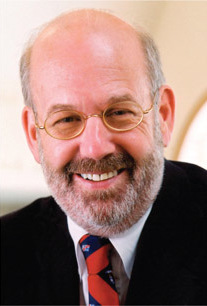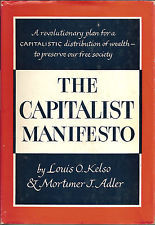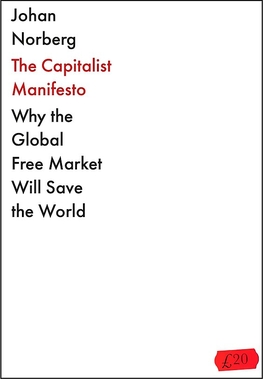
A manifesto is a written declaration of the intentions, motives, or views of the issuer, be it an individual, group, political party, or government. A manifesto usually accepts a previously published opinion or public consensus or promotes a new idea with prescriptive notions for carrying out changes the author believes should be made. It often is political, social or artistic in nature, sometimes revolutionary, but may present an individual's life stance. Manifestos relating to religious belief are generally referred to as creeds or confessions of faith.

Naomi Klein is a Canadian author, social activist, and filmmaker known for her political analyses; support of ecofeminism, organized labour, and leftism; and criticism of corporate globalization, fascism, ecofascism and capitalism. As of 2021, she is an associate professor, and professor of climate justice at the University of British Columbia, co-directing a Centre for Climate Justice.

The Communist Manifesto, originally the Manifesto of the Communist Party, is a political pamphlet written by Karl Marx and Friedrich Engels, commissioned by the Communist League and originally published in London in 1848. The text is the first and most systematic attempt by Marx and Engels to codify for widespread consumption the core historical materialist idea that, as stated in the text's opening words, "the history of all hitherto existing society is the history of class struggles", in which social classes are defined by the relationship of people to the means of production. Published against the backdrop of the Revolutions of 1848 and their subsequent repression across Europe, the Manifesto remains one of the world's most influential political documents.

The Fourth International (FI) was established in France in 1938 by Leon Trotsky and his supporters, having been expelled from the Soviet Union and the Communist International.

Llewellyn Harrison Rockwell Jr. is an American author, editor, and political consultant. A libertarian and a self-professed anarcho-capitalist, he founded and is the chairman of the Mises Institute, a non-profit promoting the Austrian School of economics.

Avram David "Avi" Lewis is a Canadian documentary filmmaker, former host of the Al Jazeera English show Fault Lines and former host of the Canadian Broadcasting Corporation (CBC) current-affairs programs CounterSpin and On the Map.
Affluenza is a pseudoscientific psychological malaise supposedly affecting wealthy people. It is a portmanteau of affluence and influenza, and is used most commonly by critics of consumerism. It is not a medically recognized disease.

Economic determinism is a socioeconomic theory that economic relationships are the foundation upon which all other societal and political arrangements in society are based. The theory stresses that societies are divided into competing economic classes whose relative political power is determined by the nature of the economic system.
Derek Norman Wall is a British politician. He was the joint International Coordinator for the Green Party of England and Wales and stood against Prime Minister Theresa May as the Green candidate for Maidenhead at the 2017 general election. Formerly the party's Principal Speaker, he is known as a prominent eco-socialist, campaigning both for environmentalism and socialism. Alongside his political role, Wall is an academic and a writer, having published on the subject of ecosocialism and the wider Green politics movement. He is a contributor to the Morning Star newspaper and a blogger.

An art manifesto is a public declaration of the intentions, motives, or views of an artist or artistic movement. Manifestos are a standard feature of the various movements in the modernist avant-garde and are still written today. Art manifestos are sometimes in their rhetoric intended for shock value, to achieve a revolutionary effect. They often address wider issues, such as the political system. Typical themes are the need for revolution, freedom and the implied or overtly stated superiority of the writers over the status quo. The manifesto gives a means of expressing, publicising and recording ideas for the artist or art group—even if only one or two people write the words, it is mostly still attributed to the group name.

Mundane science fiction (MSF) is a niche literary movement within science fiction that developed in the early 2000s, with principles codified by the "Mundane Manifesto" in 2004, signed by author Geoff Ryman and "The Clarion West 2004 Class". The movement proposes "mundane science fiction" as its own subgenre of science fiction, typically characterized by its setting on Earth or within the Solar System; a lack of interstellar travel, intergalactic travel or human contact with extraterrestrials; and a believable use of technology and science as it exists at the time the story is written or a plausible extension of existing technology. There is debate over the boundaries of MSF and over which works can be considered canonical. Rudy Rucker has noted MSF's similarities to hard science fiction and Ritch Calvin has pointed out MSF's similarities to cyberpunk. Some commentators have identified science fiction films and television series which embody the MSF ethos of near-future realism.

McKenzie Wark is an Australian-born writer and scholar. Wark is known for her writings on media theory, critical theory, new media, and the Situationist International. Her best known works are A Hacker Manifesto and Gamer Theory. She is a professor of Media and Cultural Studies at The New School.
Marxian class theory asserts that an individual's position within a class hierarchy is determined by their role in the production process, and argues that political and ideological consciousness is determined by class position. A class is those who share common economic interests, are conscious of those interests, and engage in collective action which advances those interests. Within Marxian class theory, the structure of the production process forms the basis of class construction.

Umair Haque is a British economist. He was the director of the Havas Media Lab, has previously blogged in the Harvard Business Review and is author of the book The New Capitalist Manifesto: Building a Disruptively Better Business. The book sets the "incumbent" capitalists of the 20th century against the 21st "insurgents" and states that the latter are creating a more sustainable "new capitalism". He is active on the Medium Writing platform.

The Capitalist Manifesto is a 1958 book by Louis O. Kelso, a lawyer-economist and Employee Stock Ownership Plan (ESOP) inventor, and Mortimer J. Adler, a neo-Thomist philosopher. Kelso and Adler detail the three principles of economic justice, Participation, Distribution, and Limitation. These principles laid the foundation of what eventually came to be called binary economics. The term "binary" comes from attributing all production (participation) and just distribution of income to two factors, the human, classified as labor, and the non-human, classified as capital. In the Preface, Adler acknowledged Kelso as the originator of the theory.

Marxism was introduced by Karl Marx. Most Marxist critics who were writing in what could chronologically be specified as the early period of Marxist literary criticism, subscribed to what has come to be called "vulgar Marxism". In this thinking of the structure of societies, literary texts are one register of the superstructure, which is determined by the economic base of any given society. Therefore, literary texts are a reflection of the economic base rather than "the social institutions from which they originate" for all social institutions, or more precisely human–social relationships, are in the final analysis determined by the economic base.
Socialism in one country was a Soviet state policy to strengthen socialism within the country rather than socialism globally. Given the defeats of the 1917–1923 European communist revolutions, Joseph Stalin encouraged the theory of the possibility of constructing socialism in the Soviet Union. The theory was eventually adopted as Soviet state policy.

The political slogan "Workers of the world, unite!" is one of the rallying cries from The Communist Manifesto (1848) by Karl Marx and Friedrich Engels. A variation of this phrase is also inscribed on Marx's tombstone. The essence of the slogan is that members of the working classes throughout the world should cooperate to defeat capitalism and achieve victory in the class conflict.
The proletariat is the social class of wage-earners, those members of a society whose only possession of significant economic value is their labour power. A member of such a class is a proletarian or a proletaire. Marxist philosophy regards the proletariat under conditions of capitalism as an exploited class - forced to accept meager wages in return for operating the means of production, which belong to the class of business owners, the bourgeoisie.

The Capitalist Manifesto: Why the Global Free Market Will Save the World is a book written by Swedish author and senior Cato Institute fellow Johan Norberg in 2023.













